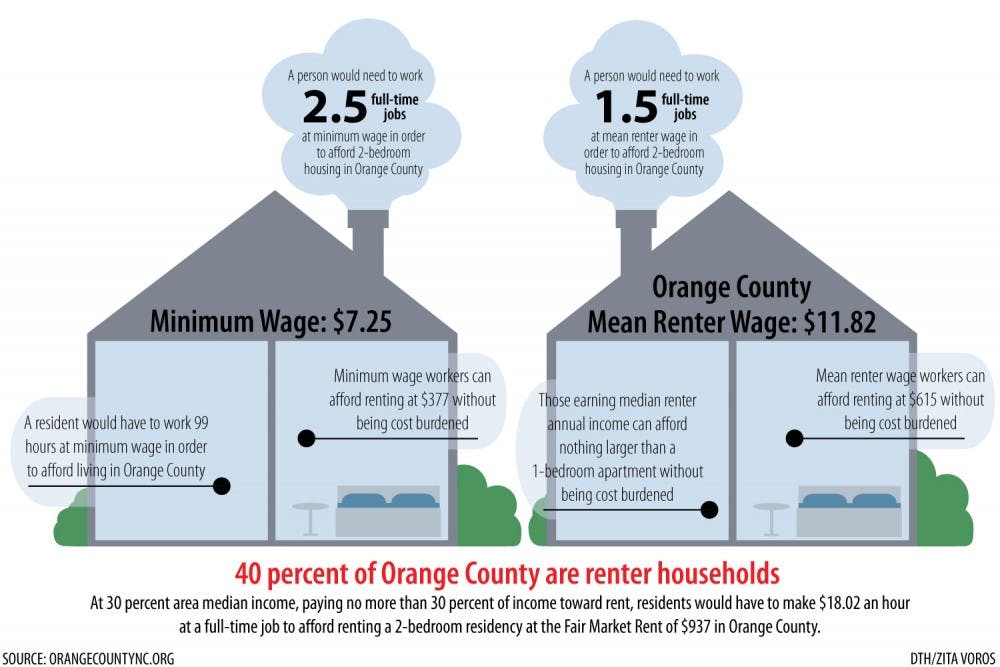Orange County is the fifth most expensive county in North Carolina to live in — tied with Durham and Chatham counties — and many residents with lower incomes have a hard time keeping up with the rising cost of housing.
Nancy Oates, Chapel Hill Town Council member, said the gap between income levels and the cost of living in Orange County is something to be concerned about.
“We have a lot of modestly paying jobs in Chapel Hill, and if we don’t have places for people to live where it’s convenient, we're going to have trouble getting people to fill those jobs,” Oates said.
She said school bus and city bus drivers are two jobs with low paying salaries, but the University and UNC Hospitals also have many modestly paying jobs with workers who might have trouble finding housing in Chapel Hill and other areas of the county.
“What’s going to happen is people are not going to commute in — it’s inconvenient and it’s expensive to park,” she said.
In Orange County, the hourly housing wage required to afford a modest two-bedroom apartment is $18.02 an hour, according to the 2016 Out of Reach Report – an annual study by the National Low Income Housing Coalition that documents the gap between wages and the price of housing by state and county.
A housing wage is defined as the hourly wage an individual needs to afford housing without being cost burdened, which means they are allocating no more than 30 percent of their income toward rent.
In Orange County, 40 percent of households are renters.
The minimum wage in North Carolina is currently $7.25 an hour. The rent affordable at this wage is $377 a month.



